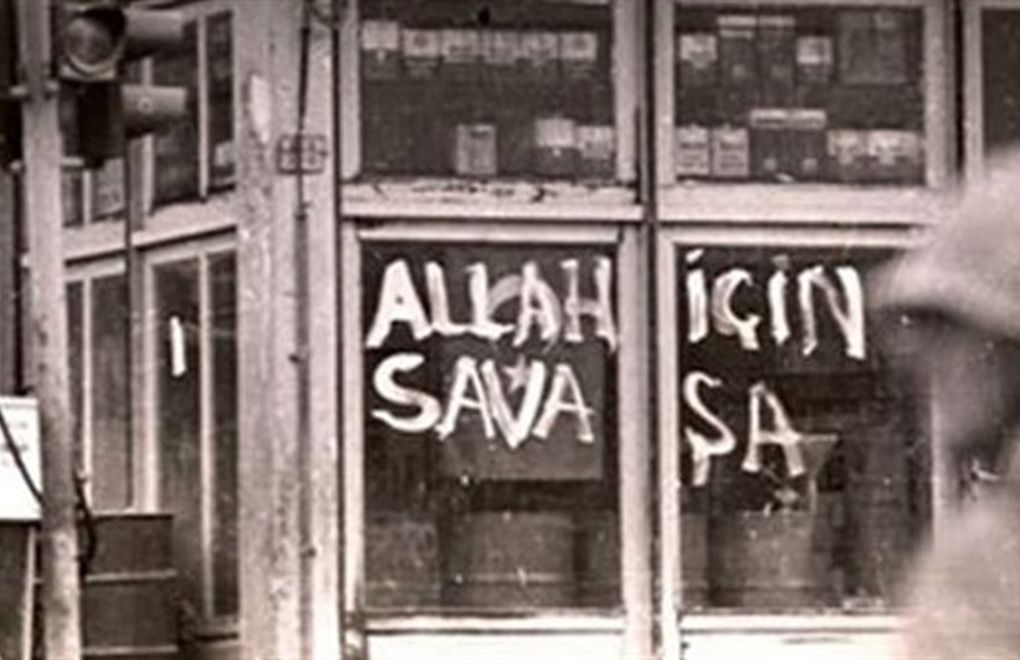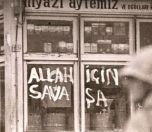"To war for Allah"
Click to read the article in Turkish
42 years have passed since the Maraş Massacre. Releasing a statement on this occasion, the Human Rights Association (İHD) has once again underlined that "it still demands truth and justice."
The incidents began on December 19, 1978 and continued till December 26, 1978 in Turkey's eastern province of Maraş. According to official figures, 111 people were murdered, over a thousand people were wounded, 552 houses were set on fire and damaged and 289 workplaces were plundered.
While a martial law was declared in 13 cities on December 26, when the massacre ended, Alevis started to emigrate after the incidents.
'One of the massacres preceding the coup'
According to the statement of the İHD, the commemorative events that they wanted to hold with the civil society organizations and Alevi associations in Maraş were once again prevented by the Governor's Office of Maraş, this time due to the COVID-19 pandemic.
Referring to this prevention, the association has indicated that "the right to assembly and demonstration, an indispensable part of democratic life, is prevented for different excuses and the attempts to create a democratic public opinion to face the massacre are hindered by the state."
The İHD has reminded the public that the Maraş Massacre has not been recognized as a "massacre" by the Parliament.
The organization has also recalled the historical context of the massacre and stressed that "Maraş Massacre was one of the massacres committed in the period leading up to the military coup on September 12, 1980 and involving the counter-organizations of the time."
"In fact, the indictment filed into the military coup of September 12, the incidents of Kahramanmaraş were recounted in detail and it was openly indicated that these incidents were provoked and not intervened to lay the ground for the coup" which will take place two years later.
'Turkey must face its past'
Condemning the "racist hate speeches of nationalist circles and party spokespersons on the anniversary of Maraş Massacre," the İHD has underlined that "the attempts to make history repeat itself will be thwarted by people and they will be reciprocated by democracy."
"The establishment of social peace in Turkey does not seem likely without facing the past, brining the grave crimes of the past into light and extending an official apology for these crimes," the association has said and added, "For this reason, the Maraş Massacre must be brought to light, Alevis must be apologized and the responsible persons must be put on trial."
The association has also called on the authorities to set up a Truth and Justice Commission "so that the truths about the massacre are disclosed."
Reiterating that the responsible parties must be tried, the İHD has reminded the state about its responsibility of apology and disclosing the truth.
Maraş Massacre
Between December 19-24,1978, 111 people were killed, according to official reports, in Maraş province when the Sunni residents brutally attacked their Alevite neighbors. According to the unofficial figures, the number of casualties exceeded 500. Lawsuits were brought against 804 people. 29 of the suspects were sentenced to death penalty, seven other to life in prison and 321 suspects to from 1 to 24 years in prison.
Although thirteen provinces of the country were put under martial law in direct response to the Maraş massacre, this did little to guarantee security of life. Political assassinations continued to occur on a daily basis; just in the course of the trial three lawyers acting for the victims of the massacre, were murdered, and the others faced death threats and were obliged to switch their places of lodging in Adana for the duration of the proceedings.
Discussing and explaining the December 1978 massacre in Maraş has been largely confined to Alevi and leftist circles. There has been little wider discussion, apart from by some on the far right associated with the events. For those who have discussed the events, the overwhelming focus has been on the fact of the killings being the result of a planned conspiracy, the work of rightists and allegedly deep state elements. In some quarters it is even argued to have been the work of international intelligence agencies. That the military court made no attempt to get to the bottom of the incidents has of course fuelled this speculation about the dimensions of the conspiracy.
* Source: bianet article by Emma Sinclair-Webb
(AÖ/SD)






